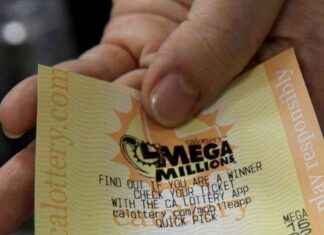The competition is over, but the Springboks still have a pack to face. The most imposing, that of the South African crowd gathered in his path. They got a glimpse of it upon their triumphant arrival at Johannesburg airport on Tuesday October 31. Thousands of fans came.
“Four years ago, we had the same ceremony, but there were fewer people, it was possible to travel,” remembers Karus, overwhelmed by the event. But since 2019, supporters have multiplied. “The whole nation is behind them, this team represents the whole country,” appreciates Karus.
We had to jostle together on Thursday, October 2, at the launch of a Springbok tour through Johannesburg. In front of Rand Girl’s High School, in the Braamfontein district, from where the double-decker bus left, a police cordon tried to contain impatient teenage girls. The students were screaming as if the Beatles were in concert.
“People are happy to see their country winning again and again,” confirms 17-year-old Keo. “In 2019, we didn’t expect to win, but after this victory, we wanted to retain the title,” adds Thapelo, her teacher. “The fervor is much stronger than in 2019,” notes Phila Sixaba, sports journalist for Kaya FM radio.
“Diversity is our strength”
The boys from the high school next door showed up with balloons to sign, dressed in their striped suits and wearing berets, the school uniform. The 1930s style of their outfit contrasts with the image sent back by the crowd. Rugby is no longer this traditional sport of an exclusively white elite. Players come from different communities and social backgrounds.
It is this miraculous alloy which has won two World Cups and which inspires the South Africans. “We are very diverse, like you are here, and we want to show that diversity is our strength in South Africa,” underlines Siya Kolisi, the first black captain of the Springboks, some of whom doubted his abilities to lead team in 2019. Today, people are screaming his name like crazy.
Her body stretched towards the front of the bus which cut through the crowd, Siya Kolisi looked like the bow of a ship. His ship was sailing through “a sea of ??green and gold” which has been flooding the country for eight weeks, President Cyril Ramaphosa said during a ceremony in Pretoria. “You have given energy to the population as rarely seen before,” thanked the head of state, who is not failing to ride the wave a few months before the 2024 general elections.
It’s good to show off alongside the Springboks. It is for them that pump attendants, mechanics, hospital staff, bankers, marginalized people, small traders and students flooded the sidewalks of downtown Johannesburg. These streets, usually so inhospitable, once again become a space of freedom where the population mixes. Heads protruded from the gutted and squatted buildings in the heart of Johannesburg to enjoy the spectacle.
“It’s stronger than in 2019”
Neither the business districts nor the suburbs have been forgotten. The bus headed towards Soweto, the huge township in the southwest of Johannesburg, a black city. The public spent the afternoon waiting for the heroes from the back of pick-ups, under umbrellas, at the intersection of major roads.
This neighborhood was created under apartheid to keep black populations away. On Thursday, it was the national rugby team, the former symbol of the white minority, which made the trip, as in 2019. “Many people died to allow us to be here today, some n “have never seen the freedom we enjoy,” confides Siya Kolisi to Le Monde.
The bus ended its journey at the large FNB Stadium in Johannesburg. Many places were unoccupied but the atmosphere was electric. Known to be a reserved man, Jacques Nienaber, defense coach of the Springboks, let himself be carried away by emotion. “All this energy… We received a little bit of it in Paris – even though we were in our bubble – with social media, TikTok and everything else. But now we’re seeing it in real life, it’s incredible. It’s stronger than in 2019, without a doubt,” he confided to Le Monde.
“I’m not much of a rugby guy, but it was huge when I saw South Africa had won. It moved me so much, I had to be there to welcome the boys,” confided Abdoul, met at the airport. President Ramaphosa was amused by this sudden rugbymania. “Even people who didn’t follow rugby or weren’t interested in it now talk confidently about scrums, rucks, drops and tries… without understanding what they’re saying,” joked the head of rugby. the state. He himself says he made the effort to learn the players’ surnames by heart, as Nelson Mandela did before him in 1995.
“2027, here we come”
The Springboks have not finished hearing their names chanted. They are now expected in Cape Town, Durban and East London in the Eastern Cape province, a land of black rugby. Their tour will end on Sunday, before probably resuming in 2024. The federation had to justify its choices and promise to return to non-selected cities.
“I know many South Africans would like the team and its staff to parade in every town, every village, but our country is too big. Let us be happy that they are here with the cup,” said President Ramaphosa. “I’m not happy,” Thebo, a resident of Katlehong we met at the airport, told us. The Springboks are not just Soweto and Pretoria, why always Soweto? »
Demanded by their fans but recalled by their clubs, obliged by their sponsors and solicited by the media, the Springboks no longer belong to themselves. “This cut is for you,” Siya Kolisi repeated over and over again. Intoxicated by the cheers, the captain made a promise to the crowd: “2027, here we come. »





